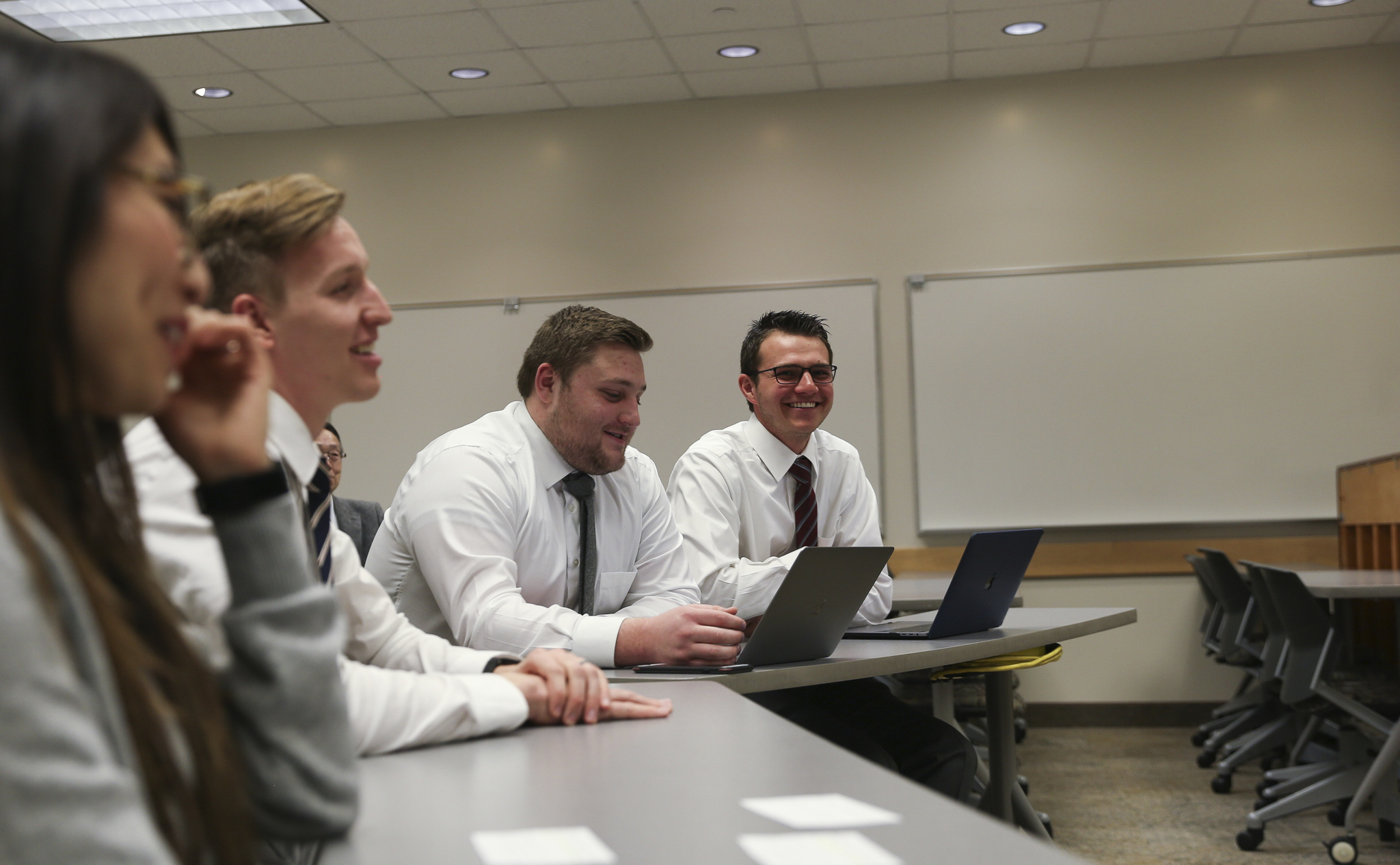
Reading Japanese articles didn’t seem to be something that would spark an important political conversation among Japanese 321 students — until it did. The students started to notice issues that resonated with them from the readings, like fake news and politics.
Eventually, their interest in political topics led to a class visit from Congressman John Curtis on March 18, made possible because their professor, Yoshihiko Ariizumi, plays tennis with Curtis’ wife Sue.

Students came prepared with questions to ask at the panel Curtis guided during their class on March 18. Their questions focused on getting more student involvement in politics and how to better support their local congresspeople.
Curtis began with a story from when he was first elected as mayor of Provo. He said of the 120,000 Provo residents at the time, only 11,000 voted in the mayor’s race. Only 500 votes made the difference between Curtis and the other candidate.
“If BYU students decided to get involved and were successful, they could pretty easily get 500 votes, which could change the race,” Curtis said. “Yet, you don’t. Your ability to have a dramatic influence on the politics of Provo is right within your reach.”
Curtis said that year after year students do not engage in politics, despite worrying about parking and towing and continuing to grow frustrated that students have no influence.
“You (students) can literally change the face of politics,” Curtis said. “If you really engage, you can probably pick the next governor.”
He shared his experience with fake news and how he deciphers the good from the bad while keeping himself well-informed.
“There has always been bad information everywhere you look, even before social media. And even though there are good intentions, they get it wrong,” Curtis said.
Curtis said it is most beneficial to access social media and the press with a filter. He suggested students use their intuition and gather information from multiple different sources before making any decisions.
When it comes to voting on any level, Curtis strongly recommended that everyone — not just students — researches to know who they are voting for and then place their trust in that candidate.
Curtis said students should go out, vote and volunteer for a political campaign. He related politics to sports, saying he hates watching soccer because he has never played it, and it’s boring to him.
“Politics is the same way. I sat in city council meetings as mayor and loved every minute of it,” Curtis said. “By volunteering for a campaign, it’s like picking up a basketball and playing with your friend.”
He said involvement provokes more understanding about politics and what each candidate stands for. According to the congressman, the key to getting involved with politics is making time to do it.
“Change the paradigm that you have to carve out huge chunks of time to help and learn,” Curtis said. “You are studying and working, and your life is full, but just simply say that you have to do the basics.”
He related “doing the basics” to teaching people as a missionary for The Church of Jesus Christ of Latter-day Saints. A missionary simply has to help investigators do small and simple things to see progress, which is similar to politics. One has to start by doing small things to learn more.
Sue Curtis said she also believes it can be fairly simple to get involved in politics.
“If you find a topic that people are passionate about, people will come,” Sue Curtis said. “Find an issue that was important to BYU that isn’t addressed, and you can get students interested.”
John Curtis closed by encouraging students to just get involved because of the difference they can make in their own society.
“Your voice is magnified by 1,000 because so few people raise their voices,” John Curtis said. “Your generation needs to speak up and say this is unacceptable; you need to say, ‘OK, it’s time for change.'”




